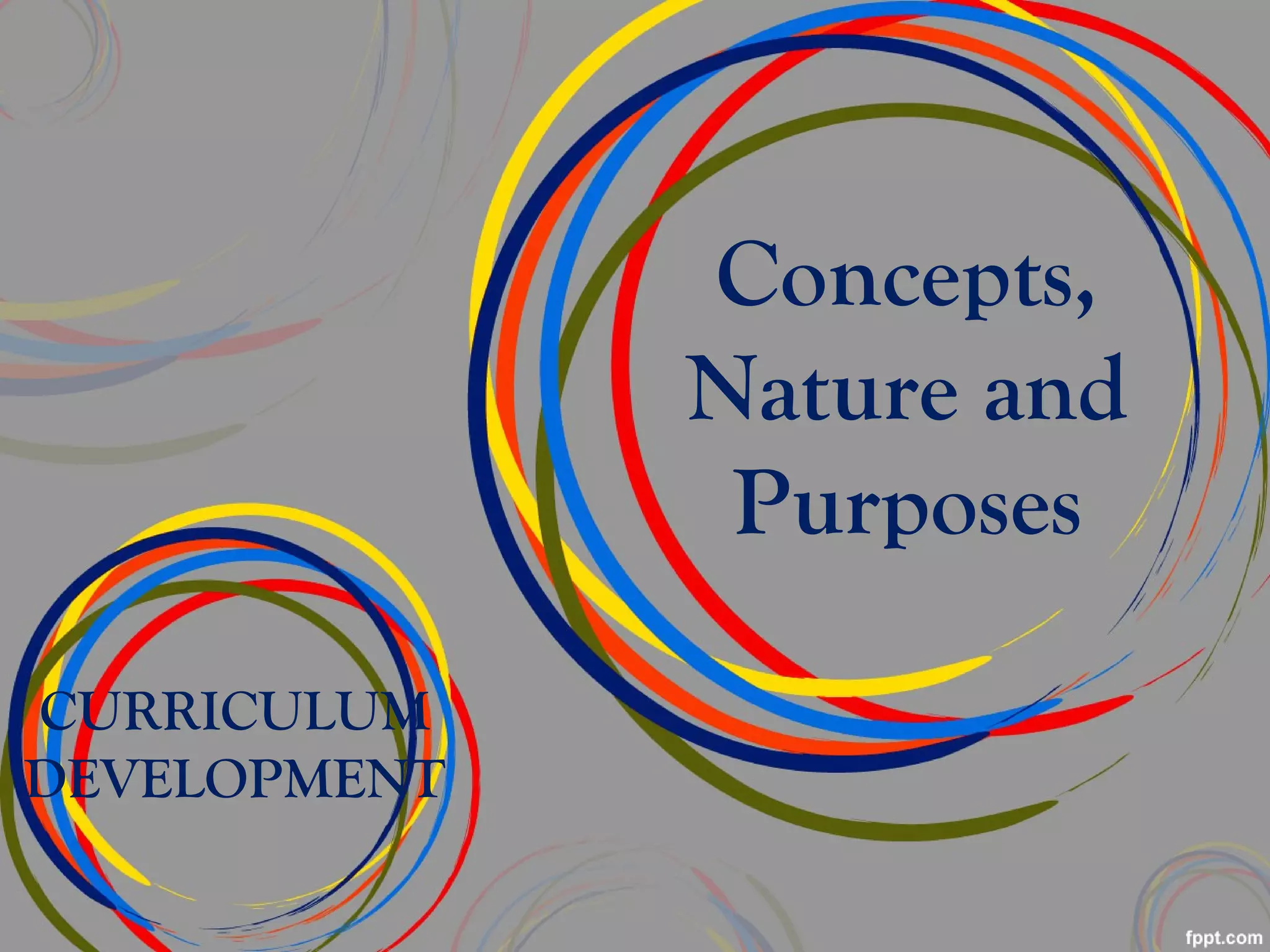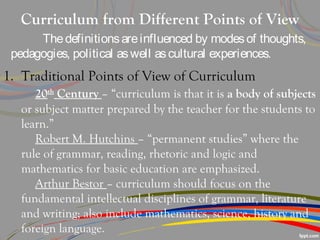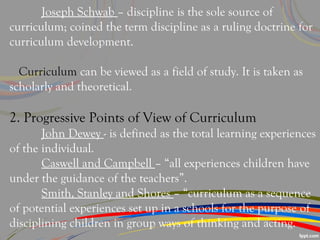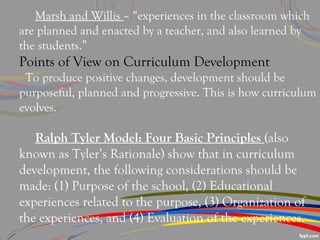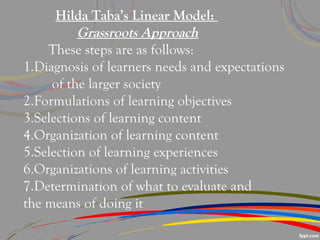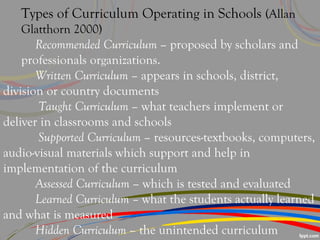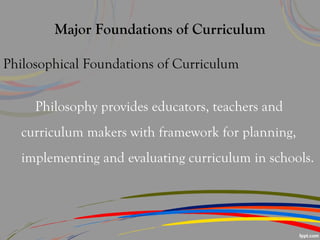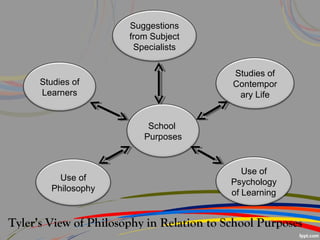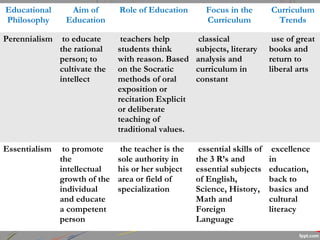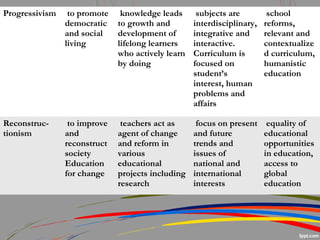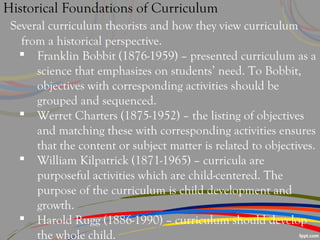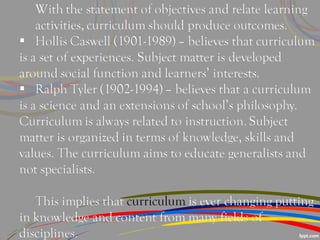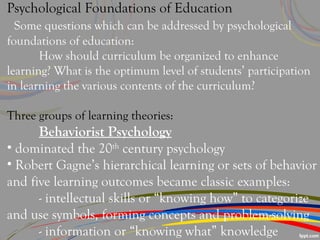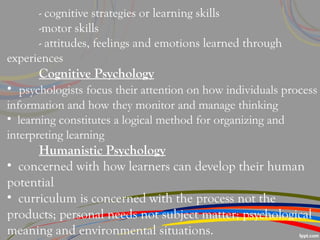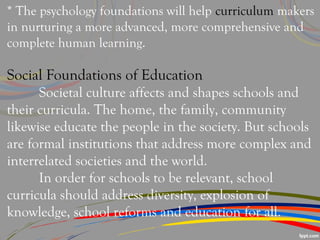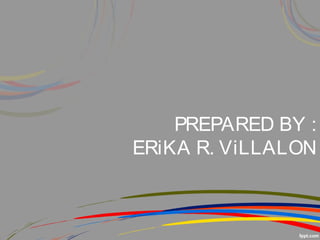The document discusses different perspectives on curriculum including traditional, progressive, and types of curriculum operating in schools. It also covers major foundations of curriculum such as philosophical, historical, psychological, and social foundations. Specifically, it provides examples of prominent curriculum theorists that viewed curriculum from historical perspectives like Bobbitt, Charters, and Kilpatrick. It also describes three groups of learning theories from a psychological perspective: behaviorist, cognitive, and humanistic psychology. Lastly, it notes that societal culture shapes schools and curricula, and curricula should address diversity, knowledge growth, reforms, and education for all to remain relevant.
